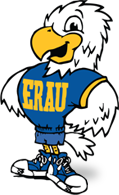In this entry, I’d like to share what I’ve learned from my internships so that you as readers can seek out valuable challenges to jump into during your college years and how to leverage the most growth out of those experiences. First, I’ll begin with concepts from a book called “The three signs of a Miserable Job” by Patrick Lencioni. Then, I’ll tell you about all the super cool stuff I’ve done outside of work! After all, work-life balance is important.
Three signs of a miserable job, and in my opinion, any miserable situation are: Irrelevance, Immeasurement, and Anonymity.
We’ll start with Irrelevance. Everyone needs to know that their job matters, to someone. Without seeing a connection between the work and the satisfaction of another person or group of people, an employee simply will not find lasting fulfillment. Even the most cynical employees or students need to know that their work matters to someone, even if it’s just the boss or professor. If you’re in an organization on campus or outside of campus, know your purpose! If you’re like me, you’ll strive for the highest expression of that purpose without fearing failure!
Moving on to Immeasurement. You need to be able to gauge your progress and level of contribution. You cannot be fulfilled in your work if your success depends on the opinions or whims of another person, no matter how benevolent that person may be. Without tangible means of assessing success or failure, motivation eventually deteriorates as people see themselves as unable to control their own fate. Learn how to advocate yourself as a team member now in a college setting so that by the time you have a full time job, you’re not constantly seeking the approval of others. Build your skill sets so much, that you can evaluate your own success and failure! Yes, teamwork and supervision is extremely necessary, but constantly seeking approval of others is not necessary, find a healthy balance.
Lastly, Anonymity can contribute to an unfulfilling situation. People cannot be fulfilled in their work if they are not known. All human beings need to be understood and appreciated for their unique qualities by someone in a position of authority. People who see themselves as invisible, generic or anonymous cannot love their jobs, no matter what they are doing. Again, this same concept can be applied to your college employment, classes, project group, clubs, etc.
Here are some of the cool things I’ve experienced outside of work: Yoga, Boeing Aerospace Leadership Chapter Events – meeting Boeing executives, Co-ed Softball, Gay Pride Parade, Art-Festival in Laguna Beach, Angels Baseball Games, Lake Havasu, Aquarium, IMAX movies, Beaches / Sunsets / Running, U.S. Open – Surfing, San Diego – Intervention, Night Life – dancing, Rock Harbor Church / Community Groups, Restaurants/shopping, REACH (Boeing Social Organization – Happy Hrs, etc..), Mars Hill Church / Community Groups, Blue Angels, White Water Rafting, Sounders Soccer Games, Whale Watching – San Juan Islands, ERAU Alumni Events, Pike Place Market, July 4th on top of Microsoft Building – roof-top fundraiser party, Cabin Trip – Leavenworth. And the fun continues….
Thanks for reading!



